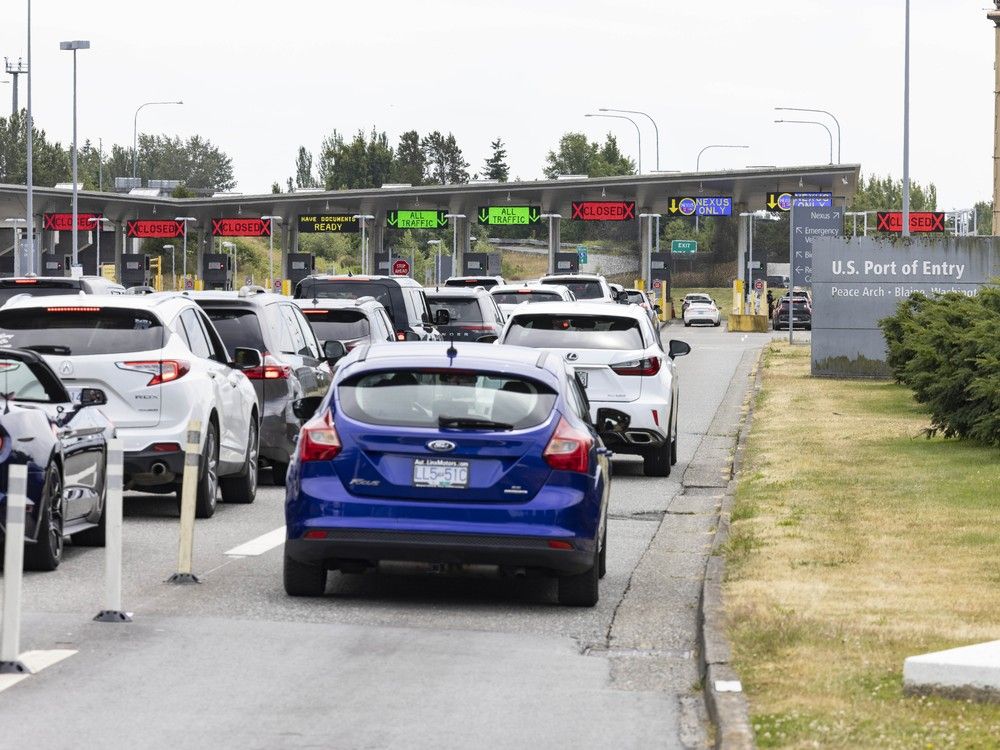
The number of B.C. cars crossing into Washington state in July were at their highest level since February — but it was still nearly a third fewer than a year ago.
Southbound crossings at the four main points of entry near Metro Vancouver were down 27.7 per cent last month compared to July 2024, according to data collected by the B.C. Ministry of Transportation and Washington State’s Department of Transportation. It’s the sixth-straight month in which southbound crossings were down at Cascadia border crossings.
For some businesses, particularly duty-free stores, the decline has been devastating.
“About 75 per cent of our business is made up from Canadians going to the U.S.A. That has dropped dramatically,” said Cam Bissonnette, who owns two duty-free shops in Osoyoos.
“People are not crossing the border. People are not coming into my store and they’re not buying. I’ve got shelves full of product right now,” he said.
The stores have been in Bissonnette’s family since the mid-1980s and he recalls working in them with his parents and sister.
“A lot of these three businesses in Canada are the same as me. They’re second-, third-generation operators. I’ve grown up with a lot of these people,” Bissonnette said.
Most of the duty-free stores found at land borders between Canada and the U.S. are independently owned, Canadian-run and family-run businesses, said Barbara Barrett, executive director of the Frontier Duty Free Association , an industry association.
She said duty-free stores across the country have seen business fall precipitously.
“We’re seeing pandemic-level traffic,” Barrett said. “Canadians are quite consciously not travelling over the border into the States.”
Bissonnette said his business was down about 30 per cent in July, compared to last year. Duty-free shops are typically a seasonal business, with high sales during the summer that support slower winter months.
“They make hay in the summer, and then they store it for the winter,” Barrett said.
For Bissonnette, the collapse in business has meant hiring fewer staff and cutting opening hours down to eight a day from the usual 12.
“When summertime comes around, usually we would hire a few more bodies at both stores, but we didn’t do that this year,” he said.
Bissonnette also took a second job as a mortgage broker to help keep his businesses afloat, after struggling through extended border closures during the pandemic.
“We were still struggling to bounce back from the border being closed for two years from COVID,” he said.
“It’s getting scary,” he said. “There’s not a lot of money going into the accounts right now.”
Barrett said her association is calling on the government for regulatory changes and temporary support, similar to what was done during the pandemic, to get through the current moment.
“We do think it’ll go back to normal at some point. But we do need some support to help weather the storm,” she said.
Bissonnette said even something as simple as low- or no-interest loans to get through this period would be helpful.
“Right now, there’s zero support, which is quite frustrating,” he said. “We’re basically collateral damage in economic warfare right now.”
@njgriffiths
ngriffiths@postmedia.com